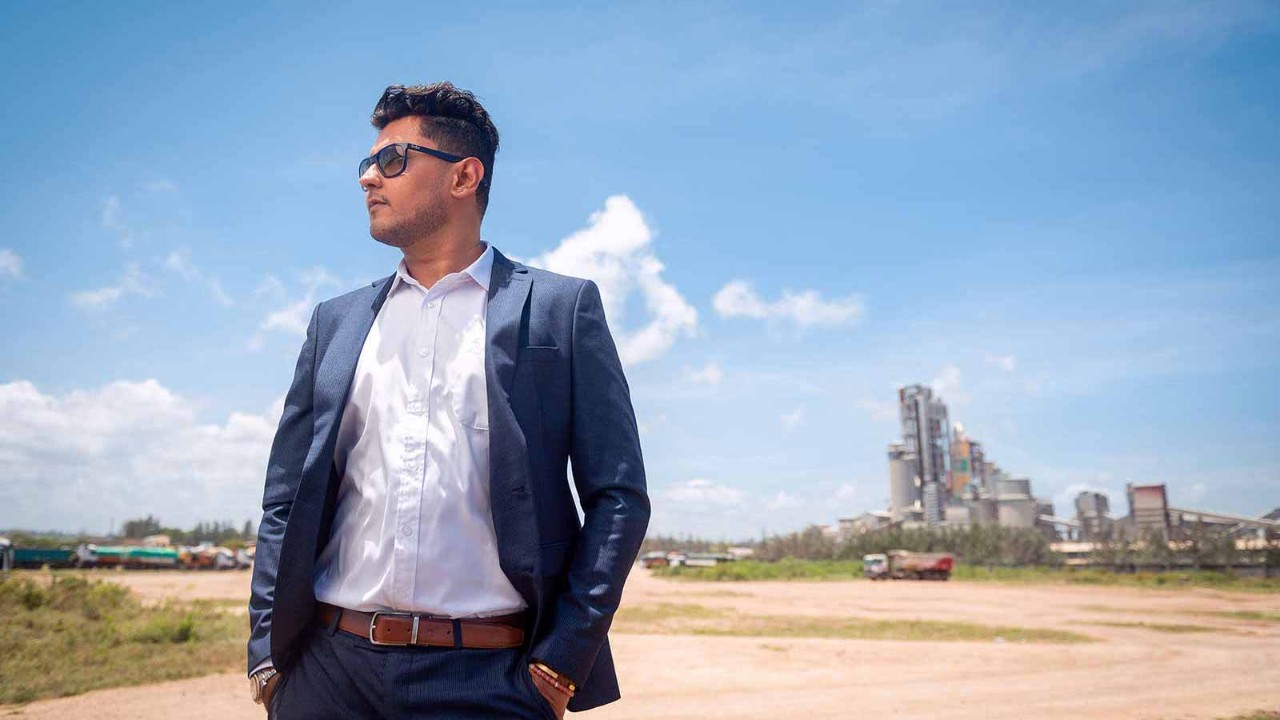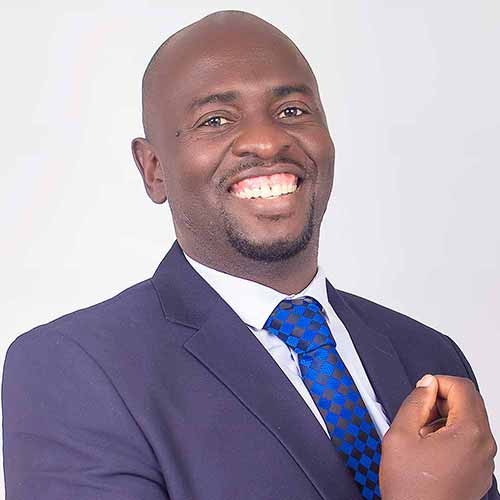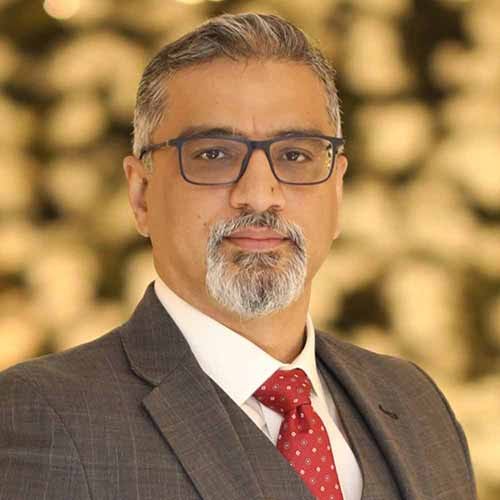
When Vishal Soni travels around Kenya he can point to untold numbers of houses and structures and say: ‘We built that.’ As group chief financial officer with Nyumba Group, which owns Mombasa Cement and Corrugated Group, a producer of steel and roofing materials, Vishal is proud that its products are literally built into the country’s fabric.
‘Mombasa Cement’s slogan is “build for generations”,’ he says. ‘It is one of our founding principles that we want to build not only the company, but also houses, buildings and infrastructure that will last for generations.’ Recent infrastructure projects include Kenya’s second deepsea port at Lamu, and the Nairobi Expressway.
‘It’s not the number of years’ experience that counts, it’s the experience you have in those years’

Vishal joined the company as financial controller of Corrugated Group back in 2017 and in less than five years emerged as group CFO of the Nyumba group of companies. His move into the construction materials sector followed more than five years working with PKF Eastern Africa, where he was a fixture in both audit and consulting. Before that he spent almost three years with Grant Thornton Kenya in its audit department.
Vishal qualified with ACCA in 2008 and currently sits on its public policy committee. He has also served as a member of ACCA Kenya’s taxation forum.
CV
2022
Group CFO, Nyumba Group (Mombasa Cement and Corrugated Group), Kenya
2020
Group financial controller, Mombasa Cement and Corrugated Group
2017
Financial controller, Corrugated Group
2012
Audit senior then senior consultant, PKF Eastern Africa
2009
Audit semi senior, Grant Thornton, Kenya
Home-grown
He’s a bundle of energy, even on a video call, and talks with zeal about his current role. At just 37, he is a young CFO (‘I’ve come to understand that it’s not the number of years’ experience that counts, it’s the experience you have in those years,’) and unusual in being a Kenyan – ‘born, brought up and educated here’ – in the kind of senior role often reserved for outsiders.
He ended up in accountancy after a mix-up over start dates for a degree in medicine that left him with two years to fill. He chose to plug the gap with ACCA studies and has never looked back. ‘I now passionately pursue this experience,’ he says. His obvious enthusiasm is illustrated by his leadership of the group’s recent rebranding, ‘Nyumba’ meaning ‘home’ in Swahili.
‘You are fully empowered to do your role here, and anything else that might be right for the company’
Rebranding, he says, was something he wanted to do from the moment he arrived at the company. The change was designed to reach out to ‘young customers’, who tend to ‘associate themselves’ with preferred brands, as well as to traditional clients. The initiative sought to create a contemporary and easily accessible brand identity that seamlessly united the Nyumba brand under a cohesive umbrella.
‘There will come a time,’ Vishal says, ‘when even products like cement and construction materials are not only going to be looked at for price factors, but also as preferred brands’.
Shouldering responsibility
In an organisation that prides itself on treating its employees like family and wider society as a responsibility, Vishal is encouraged to problem-solve wherever he sees an issue. ‘Just because I’m a CFO doesn’t mean I only look at the numbers. I can dip my toe into anything. The approach here is that you are fully empowered to do not just your role, but anything else that might be right for the company.
‘It’s like in a family. If there’s something wrong, anyone in the family can shoulder the responsibility.’
‘You can find talented people, but you cannot easily find trusted people’
Nyumba Group
‘Hundreds of millions of dollars’
Estimated turnover
3,000+ people
Number of employees
3.3 million metric tonnes
Amount of cement produced annually
300,000 tonnes
Amount of steel produced annually
The attitude runs all the way to the most junior staff members. Some are made to feel so comfortable they have remained with the firm for three decades. But there’s wisdom behind the family culture. ‘You can find qualified people and you can find talented people, but you cannot easily find trusted people’, says Vishal.
Underlying Vishal’s ability to work outside of finance is ACCA’s training. ‘One of the best things ACCA has given me is critical thinking,’ he says. ‘I don’t necessarily need to know everything. I just need to be able to look at a situation or a problem, consider the possibilities at hand, learn something fresh and implement a decision.’
Problem-solving
Those problem-solving skills paid off during the pandemic when Vishal assumed responsibility for devising an 11th-hour remote working strategy, a pivot of paramount importance for a manufacturing-centric group.
His purview thus transcended the conventional boundaries of finance, delving into the realms of workforce dynamics and business sustainability. ‘That was something I personally pioneered. It was very important for us,’ Vishal says.
Social responsibility
But Nyumba plays a wider role beyond its core trade in building supplies, and Vishal is at the heart of these efforts too. He must budget for supplying up to 40,000 free meals a day to local people to ease poverty, and for tree planting to offset carbon produced by cement production. Some 1.5 million trees have been planted so far as part of the corporate carbon offset policy, and Vishal regularly shows the forest off during visits from stakeholders.
‘A lot of people call it corporate social responsibility – for us it’s just responsibility’
Nyumba also funds a school for 1,500 children with physical disabilities, the largest of its kind in Africa. The trees, the food and the school are about the company seeing beyond profit and acting with ‘humility’, Vishal says. ‘If you’re able to respond to a certain situation, then you should respond, right?’
It’s clear talking to Vishal and hearing his enthusiasm, that Nyumba is not just about supplying building materials, it’s also about building some of Kenya’s social foundations. ‘A lot of people call it corporate social responsibility. For us it’s just responsibility,’ he says.


